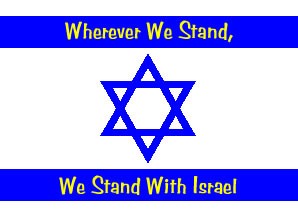
Today it seems that the forces of darkness are closing in on us again, just as the long night of 2000 years of exile for the nation of Israel seems to be nearing an end.
Israeli news announced today that we can expect an invasion by the IDF into Gaza some time soon. For the past seven years missiles have been raining out of Gaza on Jewish towns, causing children to run for bomb shelters, - and traumatizing everyone.
Because of the threat that Iran will join in with their missiles and possibly with nukes, many are concerned that military action will give Israel two fronts to fight on at the same time.
As we rapidly move into the shortest and darkest days of the year, the story of Chanukah reminds us how a miracle provided light in the dark.
In about 333 BCE, Alexander the Great and his armies had conquered the Middle East, including Israel, and went on to conquer additional land, even to the Indus River in India. Although Alexander promoted Greek religion, culture, and religion, he didn't force it on his subjects. Alexander died at the early age of only 33, after which his huge empire was split into four much smaller empires to be ruled over by his four generals. Those who came after Alexander were much less tolerant of non-Greek cultures and religion.
Israel was on a “Land bridge" highly prized by the Ptolemy dynasty that ruled Egypt, and by the Selucid Dynasty that ruled the Syrian portion of the divided Greek Empire. Eventually, the Selucids gained the upper hand, and conquered Israel. In 165 BC the Syrian king, Antiochus IV, came to rule over Israel. He was an extremely cruel and intolerant king. He forbade circumcision, Sabbath observance, reading of Torah, or celebration of the Feasts. The penalty for observing the commandments of the Torah was death.
Soldiers made sure they obeyed these new laws. Antiochus forced them to sacrifice unclean animals to the Greek god Zeus.
When Mattathias, the priest of Modi’in and his five sons heard the bad news, they ran to the hills where they organized a small army. They were led by one of the brothers, Judah, and became known as the Macabees. For three years they fought against the Syrians. After three years, on the twenty-fifth day of Kislev, they were successful and pushed the Syrian army out of their land.
Hanukah is a holiday that was instituted after the Israeli victory over the Greek-Syrians in the Maccabean Revolt, when the Jews gained victory over their oppressors.
The Macabees rushed for their holy Temple. They removed the pagan altar, and all the unclean animals. The menorah, the eight-branched candelabrum that was always supposed to be burning in the temple (Ner Tamid – eternal light), was dark. They looked for special oil to light it. It would take eight days to make new oil. All they could find was one small vial of sanctified oil – enough oil to keep the menorah burning for one day.
The Maccabees lit the menorah and said special prayers of thanks to God. And then – a great miracle happened. The little cruse of oil lasted for eight full days. - Curiously, the story of the Ner Tamid burning miraculously for 8 days is not told in the books of the Maccabees at all. It is perhaps a later invention that was added to the story of the Hanukah story.
The light from the Hanukah candles, we are taught, is different than any other kind of light. Most light is just, well, light, an electromagnetic radiation of all wavelengths. But the light of Hanukah is the embodiment of holiness itself. It’s hard enough to understand light, let alone holiness. We speak of light and darkness, and darkness being the absence of light.
Holiness is even harder to understand. We know that God is holy, and that we are supposed to be holy. But, unlike light, most of us don’t think much about holiness. - Yet, light and holiness go together.
So, as we approach the darkest time of year and get ready to light our Chanukah candles, let’s remember that light came into the darkness when the Jews rededicated their Temple and their lives to the Holy G-D of Israel.
These lights of Chanukah represent the light of the future, for at the time of the redemption, all the forces that previously obscured G-D's presence will fall away.
“These lights are holiness — haneirot hallalu kodesh hem”.






No comments:
Post a Comment